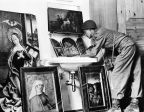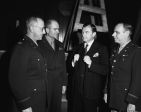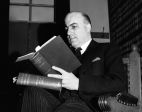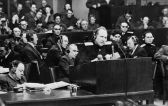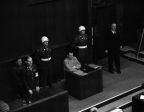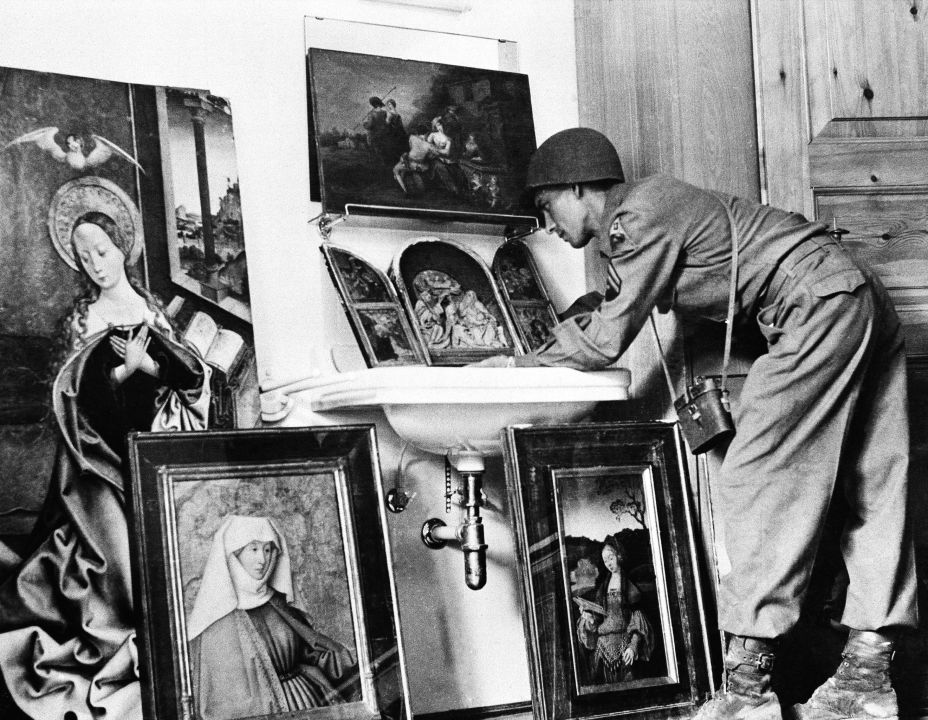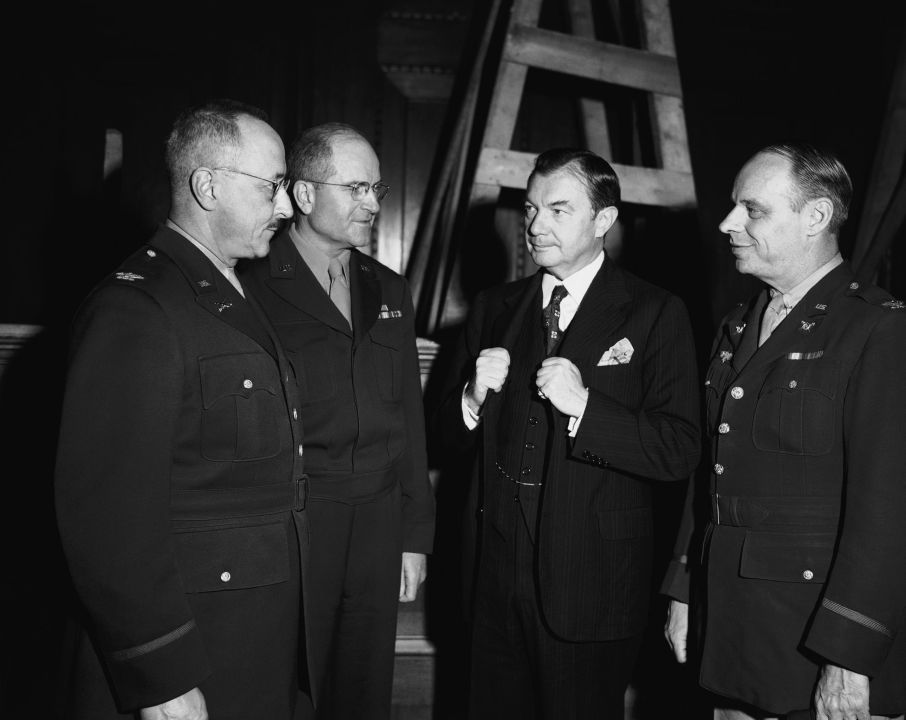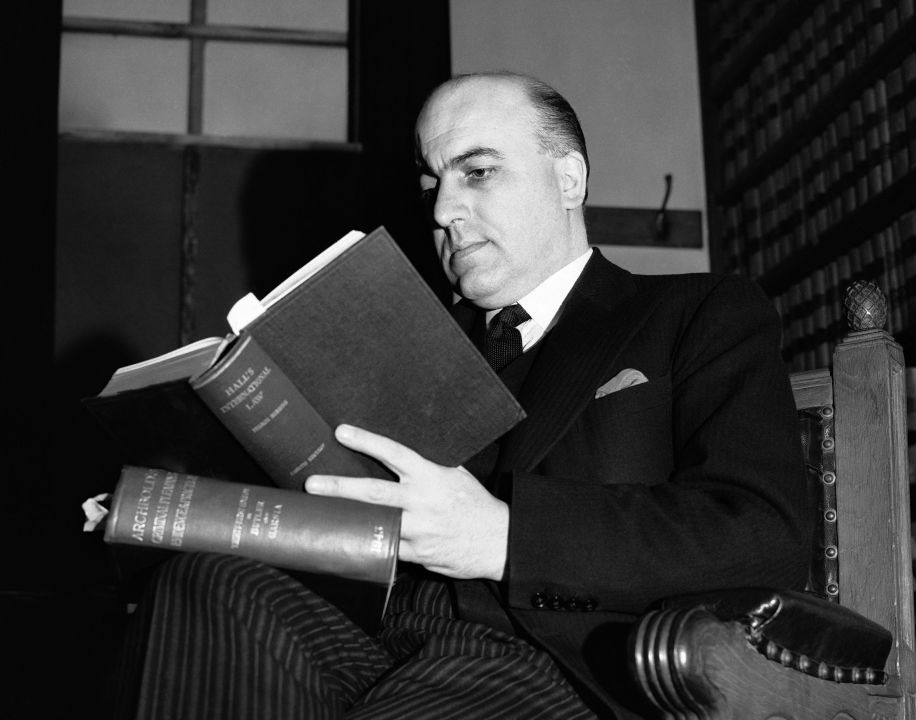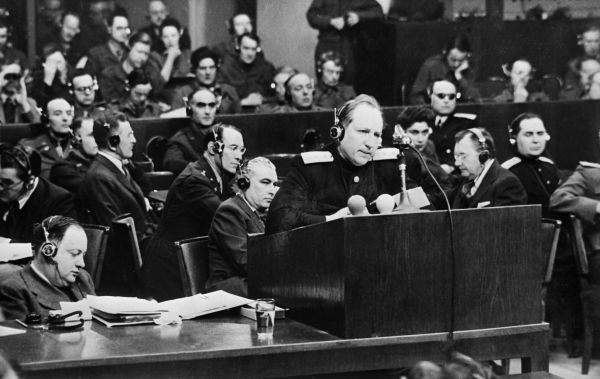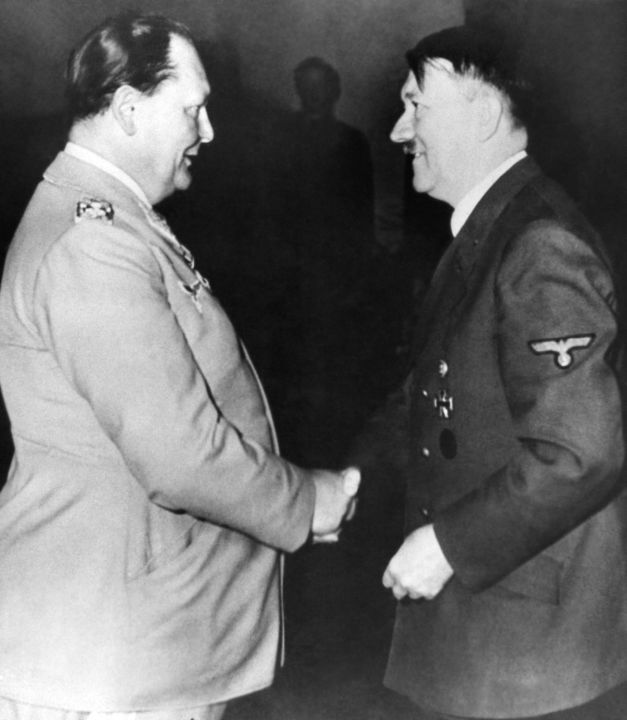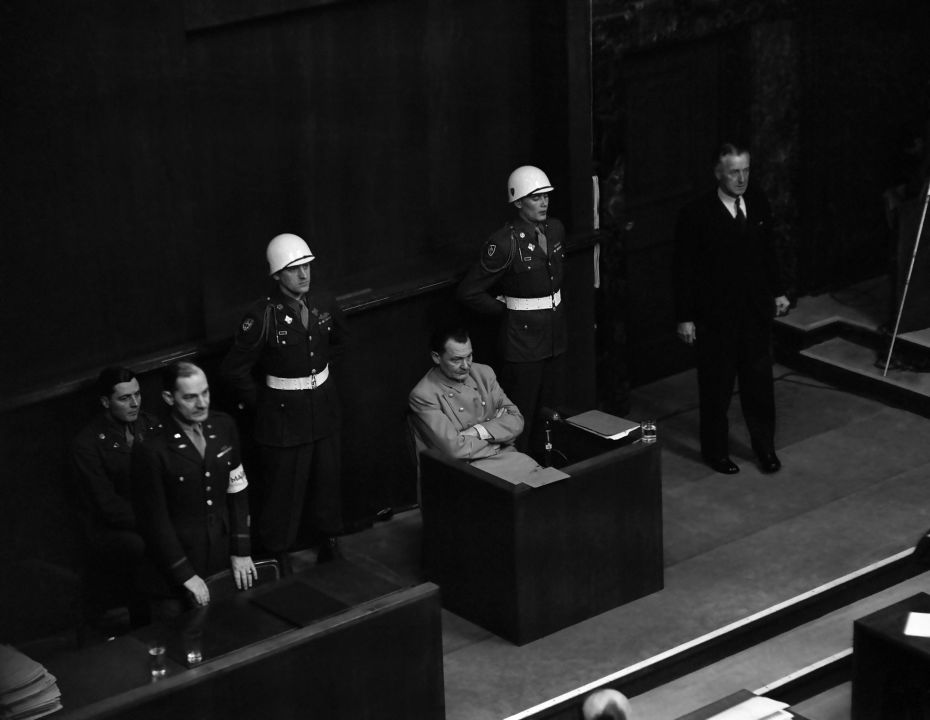From 13 to 22 March Hermann Göring, former president of the Reichstag, Minister-President of Prussia and the Reichsminister of Aviation was interrogated at the trial. For nine working days "Nazi no.2" was on the podium answering questions from defenders and prosecutors. His dialogue with the main prosecutors for the United States, Great Britain, and the Soviet Union turned into a real battle. Here are the highlights of the impressive trial’s drama.
"The process turned into a show"
"The interrogations of Göring turned the trial into a show for some time", Alexander Zvyagintsev wrote in his book "The Nuremberg Nabat".
The tribunal hall was full of people who wanted to see the Reichsmarschall's speech. (..) Göring demonstrated outstanding eloquence along with brilliant humour. The President of the Trial Lord Lawrence, who could hardly tolerate frivolity, could not stop the audience of the hall from bursts of laughter that accompanied the speech of the "Fuhrer of the defendants".
For the first three days, Göring was being questioned by his defence attorney Otto Stahmer. The defendant appeared as a fearless knight and a national hero of Germany. “Looking back, it seems to me that there is nothing I missed consolidating our power”, the defendant said.
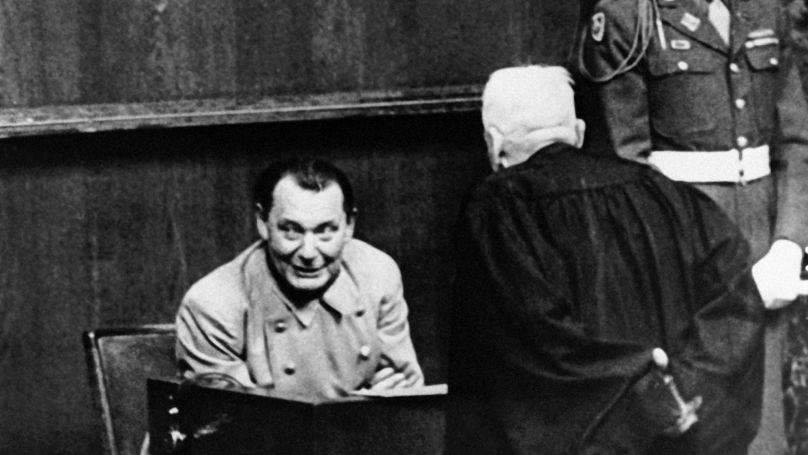
According to Göring, there was absolutely nothing that he or other Nazi leaders could be accused of. True, they fought for power by illegal methods, but for the sake of Germany.
“Dr Stahmer: Were these aims to be achieved by any means, even by illegal means?
Göring: Of course, they were to be achieved by any means. The concept of ‘illegal’ should perhaps be clarified. If I aim at a revolution, then it is an illegal action for the state then in existence. If I am successful, then it becomes a fact and thereby legal and law”.
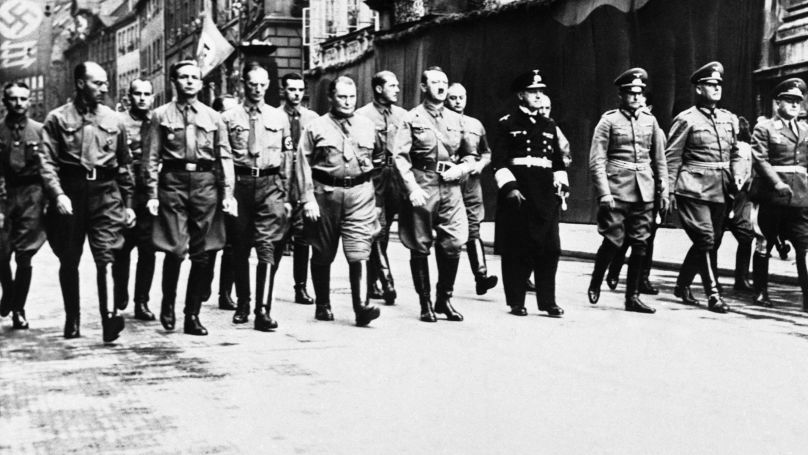
Yes, they eliminated the opposition, but not for their own sake: "We needed power in order to make Germany free and strong". True, the Communist Party was banned, but the communists themselves would do worse. True, the independent trade unions were destroyed, but only because they represented the interests of the parties, but not of the German workers.
The regions were deprived of a significant part of their powers, and their parliaments were dissolved, but how else could the sovereignty of the Reich be restored, Göring reasoned? Democratic freedoms were limited, but the very concept of freedom is a "controversial issue" and it created "obstacles to progress". True, after the death of Reich President von Hindenburg, Hitler arbitrarily took his place - but the president of America is the head of the government as well.
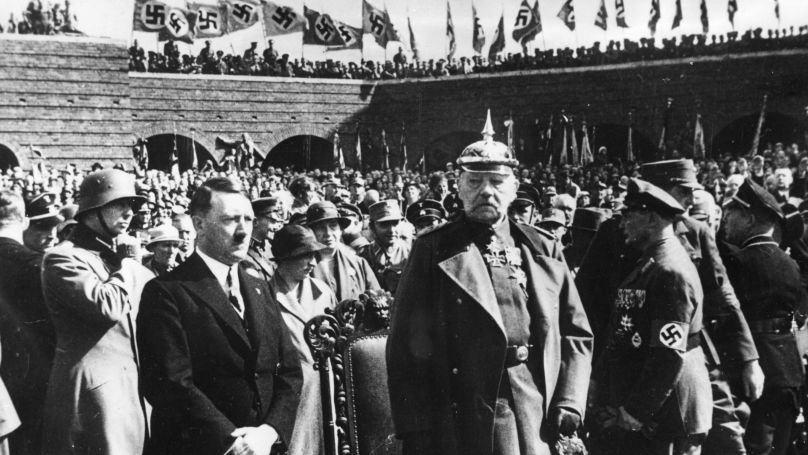
And what about the Gestapo and concentration camps, where political opponents were sent to? The communists are to blame, since they "prepared terrorist attacks". Yes, there were abuses and excessive cruelty, but Göring always fought against it and showed mercy even to the main enemy of the Reich - the communist leader Ernst Thälmann.
"Nazi no.2" claimed, that he never used the term "superior race", and considers the theory of “living space” (lebensraum) very controversial - it can rather be applied to the four victorious powers that divided the world among themselves. As for the “Fuhrer” concept, this is the only way to govern Germany: "Something which suits one country extremely well would perhaps fail completely in another. (...) Democracy appeared in Germany at a time when Germany was very badly off and had reached rock - bottom”.
Göring did not deny that Germany had launched a rearmament programme that violated the Treaty of Versailles. Hitler offered his neighbours to disarm, but they refused. The "four-year plan" should not be regarded as a preparation for an aggressive war - "the aim was to secure Germany against a blockade in the event of war".
The Reichsmarschall paid special attention to the Jewish issue. "Everywhere Jewry was in the lead in the fight against National Socialism, whether in the press, in politics, in cultural life by making National Socialism contemptible and ridiculous, or in the economic sphere”. What could be done to save Germany and raise the spirit of the German people? "Therefore the main point was at first merely to exclude Jewry from politics, from the leadership of the state”. And however "many a hard word which was said by us [by the Nazis] against Jews and Jewry" it was only a defensive reaction.
The Nuremberg Laws, which outlawed marriages between Jews and non-Jews, were necessary to prevent races from mixing in the future. Regarding the already existing "mixed bloods", Göring generously offered to "put them on the same level as other Germans". And “the destruction of the Jewish race was not planned in advance", of course.
Talking about the aggressive actions of the Nazis, Göring always emphasised that “it was forced”. True, the Reich occupied Austria, but Austrians wanted to do the same at the end of the First World War. True, the Sudetenland of Czechoslovakia was annexed by Germany, but did the Western powers not agree to it in Munich? True, the rest of Czechoslovakia could have remained undivided, Göring stated, but he never gave "a word of honour” to the Czech ambassador on this account, he was misunderstood. As for the attack on Poland the head of the Reichstag never approved of it - he believed that it was enough for Germany to annex the free city of Danzig and ensure that a safe corridor was provided to it. But how could he disobey the orders of the head of state?
The Reichsmarschall did not approve of the occupation of Norway either, but nobody really asked for his opinion. But he managed to dissuade the Fuhrer from invading Sweden. And the attack on Belgium and the Netherlands took place only because these countries couldn’t remain neutral. Of course, during the occupation of France, the Nazis brutally destroyed the resistance - but only because they were attacked by French partisans. The former aviation minister found justifications for the bombing of Warsaw, Rotterdam, and Coventry as well.
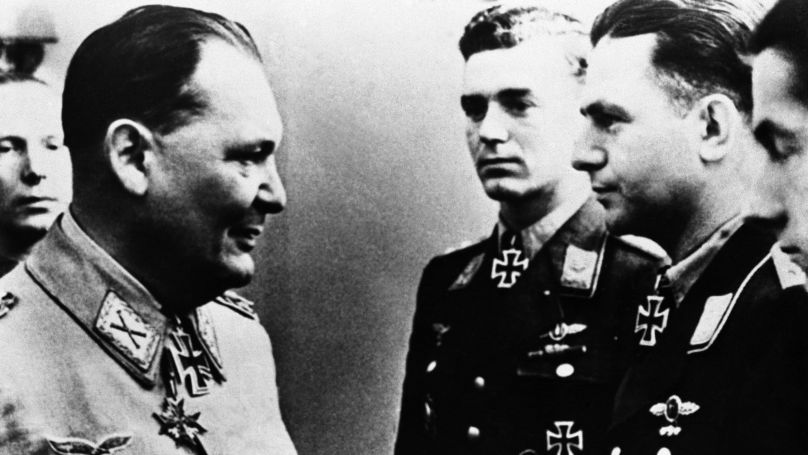
The "Nazi no.2" attributed the aggression against Yugoslavia to the fact that pro-Soviet forces had come to power in Belgrade. Göring characterised the attack on the Soviet Union itself as a preventive war, however, he claimed that he had always discouraged Hitler from it.
Furthermore, Göring didn’t recognise certain documents related to the planning of the war. He called the Hossbach report a subjective interpretation of the Fuhrer's ideas. As for the memorandum with the results of the state secretaries’ meeting on Operation Barbarossa, according to which it was necessary to "fully provide the armed forces with provisions from Russia", it was considered to be "a very unreliable document" by him.
From his point of view, the famine in the occupied territories of the USSR was provoked by the Soviet "scorched earth policy". Nazi crimes against civilians were occasional excesses, for which Göring personally and severely punished soldiers. The defendant admitted the famine in Leningrad, but ironically noted that until now "In the history of war I have until now found no evidence that the besieger generously supplies the besieged with food so that they can resist longer". At the same time, he denied the bombing of the city and questioned the testimony of Soviet witnesses Orbeli and Lomakin.
Göring also tried to defend his accomplices. Keitel couldn’t resign, Rosenberg could not prohibit the recruitment of Eastern workers against the orders of the Fuhrer. Jodl did not let Germany withdraw from the Geneva Agreements protecting the rights of prisoners of war. Seyss-Inquart tried to preserve Austrian independence, but could not do so. Von Neurath followed a policy of peace and understanding with Great Britain; Von Ribbentrop, could not change Hitler's position even if he wanted to. Göring didn’t even know a single general or admiral who promoted the war.
In those cases when the charges were irrefutable, Göring blamed the dead men. The propaganda minister, Joseph Goebbels, was to blame for the events of Kristallnacht on 9-10 November 1938, when Jews were attacked and destroyed throughout Germany. Heinrich Himmler, Reichsführer of the SS, was to blame for the torture and mass extermination of prisoners in concentration camps, as well as for atrocities in the occupied territories, The persecution of the church and inadequate advice to Hitler are on the conscience of the Nazi Party Chancellor Martin Bormann. And, of course, the Fuhrer is to blame for everything, however, Göring did everything he could to keep Hitler from making fateful mistakes.
"Millions knew, but you didn't know?"
On 16 March, the prosecution began its cross-examination. Robert Jackson, chief prosecutor for the United States was the first to speak. He asked Göring questions for the longest amount of time - almost for four days. Jackson decided to focus on moral and ethical aspects, showing the advantage of a democratic system over a totalitarian one.
“It didn't work out”, Lord Patrick Lawrence, grandson of Geoffrey Lawrence, president of the Trials in Nuremberg admitted in a film called “Nuremberg. To Be Remembered. The Process Through the Eyes of Journalists”. “Jackson (…) had no daily experience of cross-examining witnesses. This is a very specific skill. He almost turned the whole process into a disaster. In my grandfather's opinion, if they continued in the same vein, Göring would not have been convicted at all".
There was a problem with one of the documents presented by Jackson.
Proving that the entry of troops into the Rhineland demilitarised zone on 7 March 1936 was prepared much longer than two or three weeks, Jackson showed a paper dated 26 June 1935, which referred to "preparations for the liberation of the Rhine”. Göring's answer was stunning: the translation was incorrect, it meant clearance of the Rhine of ships in the event of a mobilisation. "These activities were preparations for the armed occupation of the Rhineland, weren’t they?", Jackson insisted. "No, that is completely wrong", Göring argued again. "But of a character which had to be kept entirely secret from foreign powers?". The answer was: "I do not believe I can recall the publication of the preparations of the United States for mobilisation”, the Reichsmarschall replied in his usual manner.
Such “trolling”, as we call it today, caused a real storm. Jackson demanded that the trial oblige the defendants to answer "yes" or "no" and prohibit making "arbitrary statements". President Lawrence acknowledged that "the mentioning of secrecy in the mobilisation of the United States is completely irrelevant", but did not prohibit detailed answers.
Göring, however, was confused by the next document. Jackson showed him a letter addressed to Reinhard Heydrich, chief of the Reich Main Security Office, where Göring wrote about "the final solution of the Jewish issue". The defendant insisted that it considered only emigration, not extermination.
“The cross-examination did not last even ten minutes even before it became quite obvious that it was not Jackson who was in full control of the situation, but the accused Göring”, Alexander Zvyagintsev quoted the alternate member of the Tribunal for the United Kingdom Norman Birkett. “He was exceptionally polite, resourceful, he instantly assessed the situation, his self-confidence was growing, his advantage was becoming more and more obvious ... The podium belonged to him for almost two days, and he was never and under no circumstances interrupted".
After Robert Jackson it was Britain's Deputy Chief Prosecutor David Maxwell-Fyfe who asked questions. "Jackson could hardly get any information from Göring, who was completely happy and satisfied with the process, and I had to intervene to guide him back to earth", the Englishman recalled. He chose a different tactic and focused on specific issues.
The British prosecutor forced Göring to make excuses for Hitler. In January and October 1937, the German government guaranteed the integrity of Belgium and the Netherlands. But on 23 May 1939, during a meeting in the Reich Chancellery, the Fuhrer said: "The Dutch and Belgian air bases must be occupied by armed force. Declarations of neutrality should be ignored". And on 22 August he said: "England and France will not violate the neutrality of these countries". It turned out that Germany was going to violate neutrality? Göring had to reply that the Fuhrer "often (...) changed his mind", so his words were not reliable.
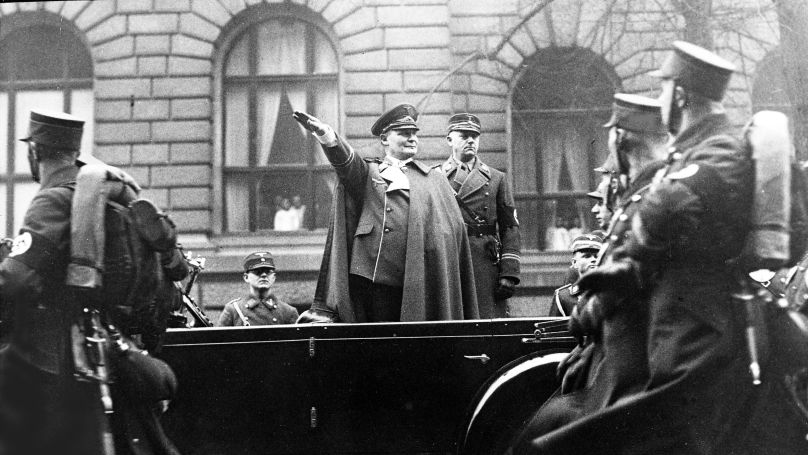
Maxwell-Fyfe echoed the Soviet data about 4 million people killed in the Auschwitz concentration camp alone. In total, the Nazis killed 6 million Jews - about 4 million in the camps and 2 million "by other means". "Will you tell the tribunal that the minister with your power in the Reich could remain in the dark about what was going on?”, the prosecutor asked. But Göring assured again that "even the Fuhrer did not know to what extent this was happening" and that Himmler was fully responsible for it. The defendant questioned the figure of 10 million victims of concentration camps. When he listened to the quote by Hitler from 17 April 1943: "If the Jews did not want to work, they were to be shot. If they cannot work, they will have to die", he said he did not know about the corresponding document.
The final part of the interrogation was conducted on 21-22 March by chief Soviet prosecutor Roman Rudenko. He referred to German documents and connected Maxwell-Fyfe's wolf-like grip with Jackson's pressure.
Using Socratic dialogue, Rudenko led the defendant to the answers that the prosecution wanted. He made Göring admit that while the Fuhrer had made all decisions himself, he often listened to the opinion of his "closest collaborators". “Will you tell me then, who was Hitler’s closest collaborator as far as the Air Force was concerned?
“I was, of course”.
“And on the questions of economics?”
“In economic matters, it was also I”.
The Reichsmarschall confirmed that Operation Barbarossa was ready as early as November 1940, including with regard to the air force. True, it was intended "in case of a possible change in the political situation, taking into account the threat from Russia”. But Rudenko did not allow this line to develop: unlike Jackson, he stopped the attempts by the accused to sidetrack the cross-examination.
Göring also admitted that after a meeting with Hitler on 16 June 1941, Bormann drew up a document with a plan for the partition of the Soviet Union. However, Göring called this document "impossibly exaggerated": in fact, “the Volga territory was not discussed. The Fuhrer wanted the Crimea, yes, but that was an aim fixed before the war. The same applies to the Baltic States”.
Göring agreed that millions of people were driven into the Reich, but denied the accusations of slavery. “Nazi no.2” called nonsense Himmler’s words about the destruction of 30 million Slavs: “I emphasise that such instructions could not have been given by Himmler, and I know of no instructions; also no directive has been mentioned here. At no time was there a directive from the Fuhrer, or anybody I know of, concerning the extermination of the Slavs".
The chief prosecutor for the French Republic, Auguste Champetier de Ribes, did not ask questions.
“Still we stymied him”, recalled Robert Jackson, as quoted by the author of “The Nuremberg Nabat”. “It was a real battle, long and difficult, accompanied by inappropriate pro-Nazi propaganda".
"The last word in the interrogation of Göring was by the Chief Prosecutor for the USSR R. A. Rudenko", Alexander Zvyagintsev stated. "His questions put Göring in a pretty deep funk. The Reichsmarschall stopped his active resistance, changed his behaviour a lot. It was noted by all those present in the hall, Rudenko's authority noticeably increased after that. Everyone began to talk about his high professionalism".
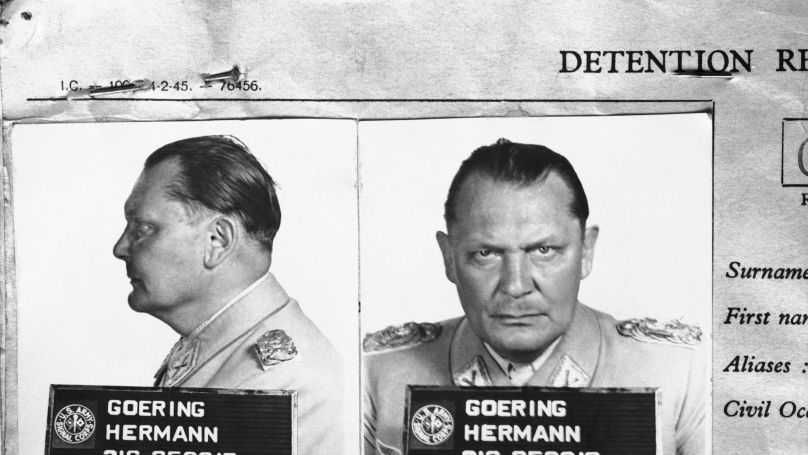
“Rudenko did his job, but I think everyone who interrogated Göring was not fully satisfied”, Sergei Miroshnichenko, a translator at the trial proceedings and researcher of international law said. He rated the interrogation as one of the most difficult moments of the tribunal.
Sources:
Sergei Miroshnichenko, “Transcript of the Nuremberg Trials”, Volume VII
Alexander Zvyagintsev "The Nuremberg Nabat".
“Nuremberg. To Be Remembered. The Process Through the Eyes of Journalists”. Film by Alexander Zvyagintsev
By Daniil Sidorov
